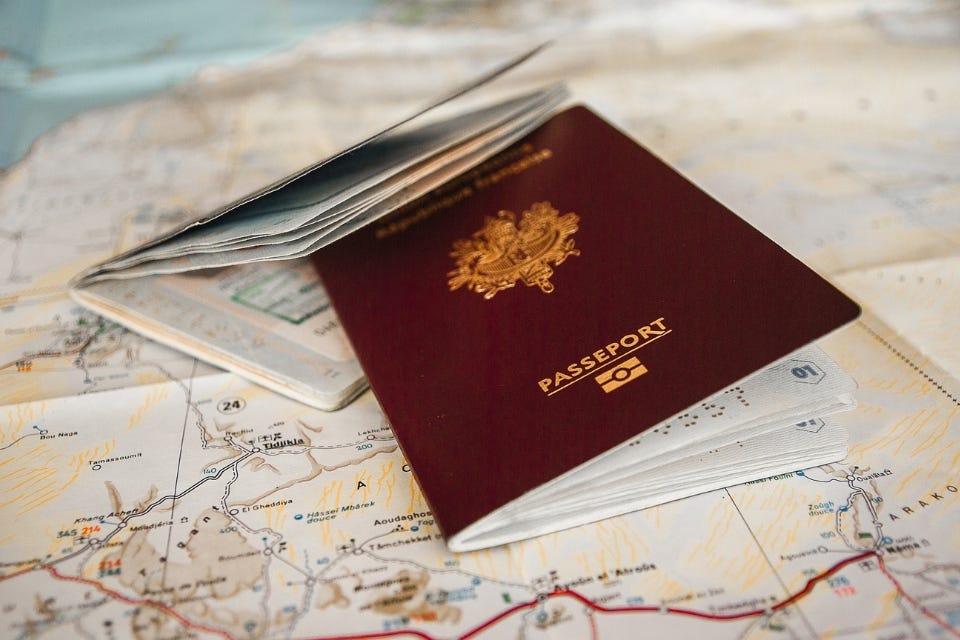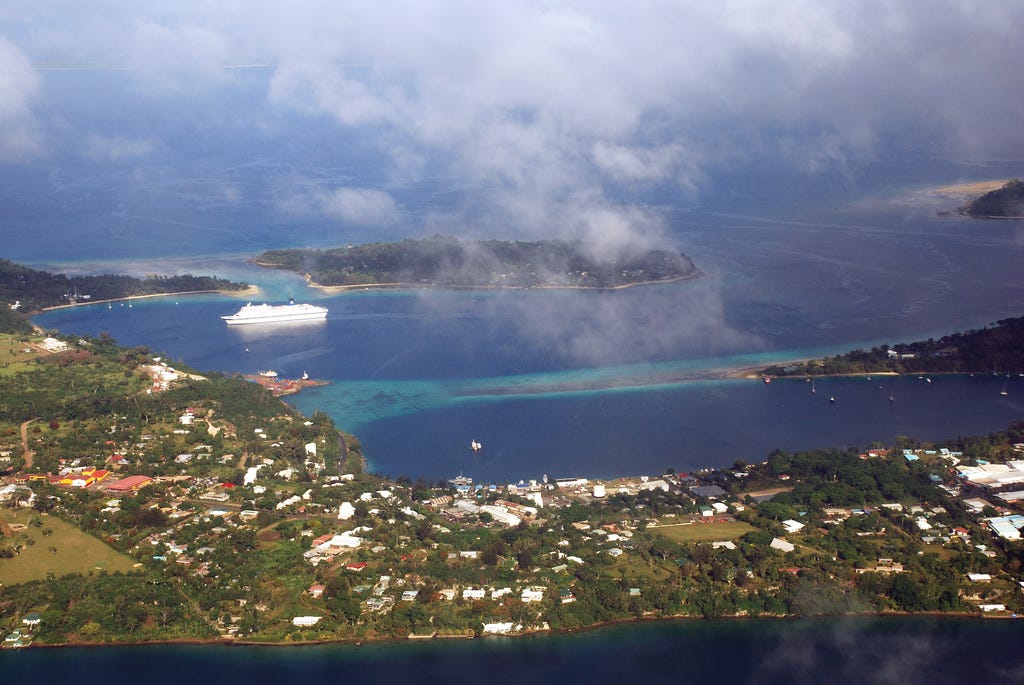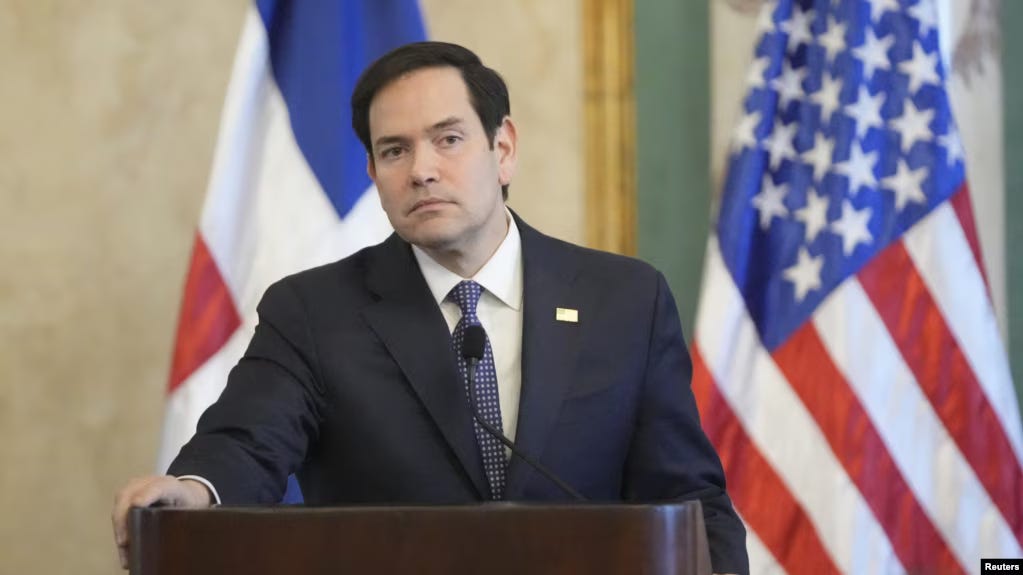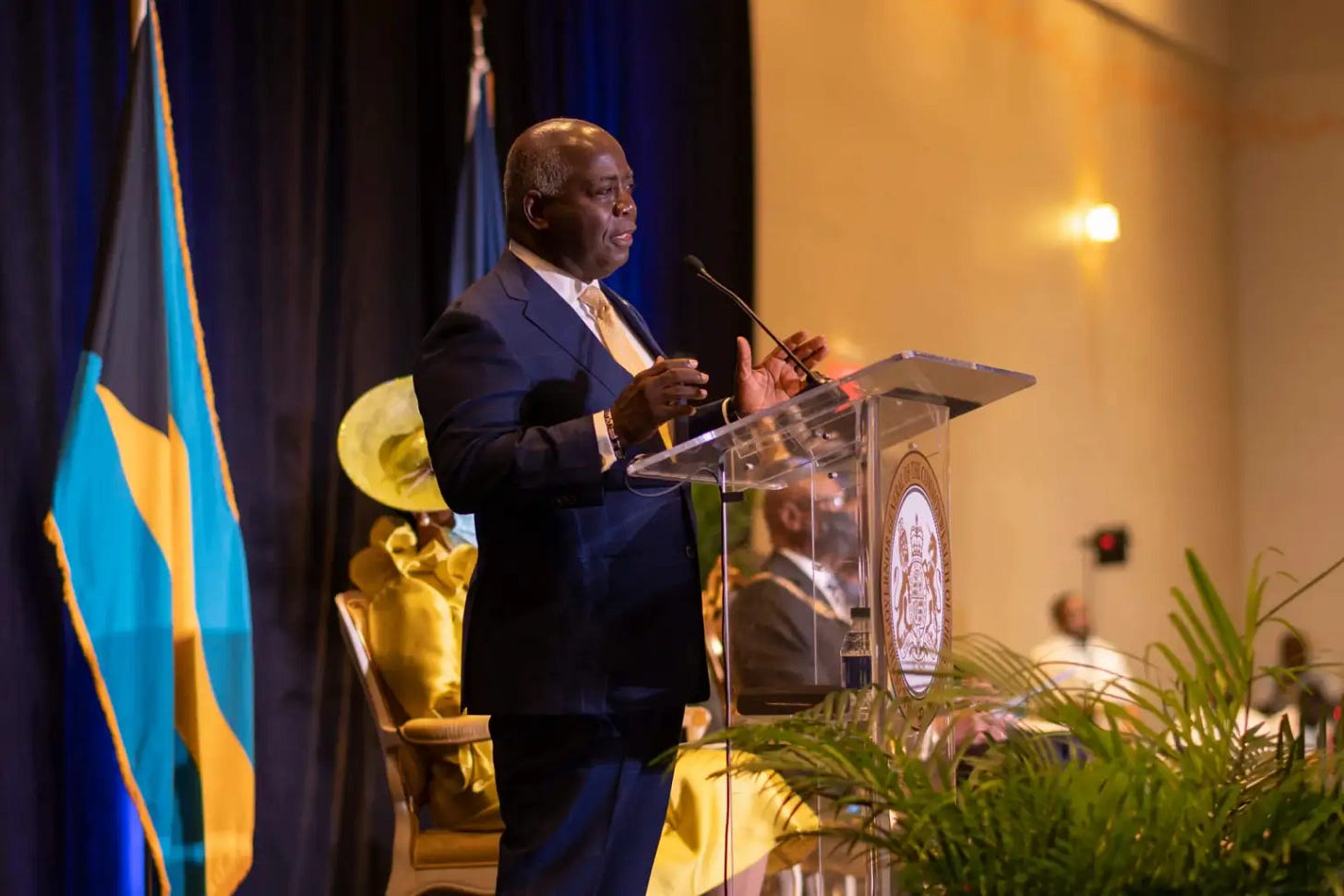More foreign affairs in a crazy, mixed-up world
Travel ban threats, but now with no rational reason behind them
There’s a new sheriff in town, apparently—and he doesn’t want anyone else muscling in on his territory when it comes to attracting rich foreigners. But his tactics aren’t pretty, bordering on thug-like, not at all credible—just transparently self-serving.
A recently-circulated “yellow list” for proposed travel bans into the United States by the new Trump administration contains the names of at least four Caribbean nations and one South Pacific nation for which no reason for their ban seems to exist—unless it is code for protecting those controversial “gold cards,” like the one the sheriff intends to start selling himself.
According to the New York Times, the “yellow” list was roughly half of a longer list that will take effect after a State Department review. That list includes 11 “red” countries—no more U.S. travel allowed for any of its nationals, including Cuba and Venezuela, even those already holding valid visas—and 10 “orange” countries, from which travel could still be possible but only after an in-person visit at an embassy by the applicant, and presumably, a bit of cash, either over or under the table.
Those on the draft “yellow” list of 22 countries will be given “60 days to clear up perceived deficiencies, with the threat of being moved onto one of the other lists if they did not comply. Such issues could include failing to share with the United States information about incoming travelers, purportedly inadequate security practices for issuing passports, or the selling of citizenship to people from banned countries, which could serve as a loophole around the restrictions.” [Italics are the author’s.]
[See “Draft list for travel ban,” March 12, https://www.nytimes.com/2025/03/14/us/politics/trump-travel-ban.html?campaign_id=9&emc=edit_nn_20250318&instance_id=150288&nl=the-morning®i_id=66543734&segment_id=193736&user_id=9e758cd9bf637abc0a14a155f872e540 .]
The yellow list includes mostly African nations, some perennially unstable—like Zimbabwe—or involved in a civil war—the Democratic Republic of Congo, for instance—or sometimes linked to armed conflicts and terrorist movements along their borders, such as Chad and Mali. Reasons were not given. (How Liberia, Malawi, and Sao Tome and Principe made this list is baffling. Perhaps I am simply not up to date on objectionable countries.)
But at least five very peaceful countries—four in the Caribbean and one in the South Pacific, all normally considered tourist paradises—are also being evaluated for “deficiencies” which appear shamelessly mercenary, at least to this lay observer. They include the Caribbean nations of Antigua and Barbuda, Dominica, St. Kitts and Nevis, and St. Lucia—all of which happen to offer “Citizenship by Investment” to relatively affluent foreign investors, including Americans, in exchange for payments of up to about $300,000 or so—and Vanuatu, which offers a similar Capital Investment Immigration Plan (CIIP).
Their misstep was apparently to dare to compete with Trump’s “gold card” offer to well-heeled foreigners—residency guaranteed at $5 million or more a pop, was it?—aimed, almost certainly, at the kind of new residents hard-luck EU member Cyprus once attracted in its “golden passport” scheme, inaugurated in 2013.
Money-launderers, criminals, and Russian oligarchs—seeking visa-free entry into the European Union after 2014 sanctions began to restrict their travel—applied en masse, sparking a corruption scandal that has stained the reputation of Cypriots for a generation. That program was finally suspended in 2020, and hundreds of suspicious passports were revoked—but the damage was already done.
Cyprus has revoked many Golden Passports it had issued to wealthy investors. Courtesy Etias.com
[See “Cyprus revokes more high-profile ‘golden passports,’” November 2024, https://www.politico.eu/article/cyprus-revokes-golden-visa-passports/ .]
A page back in time ... is a reader-supported publication.
To receive new posts and support my work,
consider becoming a free or paid subscriber.
* * * * * * *
As a “reformed” Foreign Service Officer, I keep my eyes out for unusual and outrageous events occurring in countries of interest to the United States, particularly those I have served in or visited. This includes analyses of U.S. actions affecting those countries, whether wise or effective—or neither—and in some cases, simply puzzling.
I have never been to Vanuatu, but have been thinking about it recently. The tiny South Pacific nation—population 320,000, on 80 or so islands northeast of Australia, once known as the New Hebrides—lost its visa-free EU status in 2024 over the proliferation of suspicious characters traveling on its newly-issued passports. Vanuatu became independent in 1980; heavily dependent on tourism, it was trying to diversify its economy and raise capital investment from abroad, and maybe it just got carried away.
But suddenly wary of losing out in the United States, as well, Vanuatu’s Citizenship Commission has abruptly suspended its CIIP, which sought foreign investors in government-designated funds benefiting key sectors of the country’s economy, primarily the cocoa-producing agricultural sector. [See “Vanuatu suspends CIIP,” March 17, https://www.imidaily.com/asia-pacific/vanuatu-suspends-ciip-until-further-notice-amid-regulatory-overhaul/ .]
Port Vila, Vanuatu’s picturesque capital. Photo courtesy Phillip Capper
Those Caribbean nations on the yellow list with Vanuatu are also apparently scrambling to fine-tune their citizenship schemes to meet U.S. objections, according to recent reports in Caribbean Life. Heavily dependent on the U.S. tourist trade, they are sincerely shocked by appearing on the new list—and willing to cooperate, if feeling a bit over a barrel—but in no mood to antagonize the U.S. leadership any further.
Antigua and Barbuda’s Prime Minister Gaston Browne’s recent statement on the issue characterized the general tenor of their responses, promising to “stand on principle”:
I can’t tell the United States what to do, but any reasonable person would recognize that Antigua and Barbuda is not a threat to the U.S., and we have been very cooperative. We will not promote acrimony with the U.S.. However, we will stand on principle to defend our sovereignty and our people … Our interests are mutual. We recognize the importance of a prosperous United States, and we want to have a good relationship. But at the same time, we will stand on principle and defend our sovereignty.
Gaston Browne, PM of Antigua and Barbuda, will “defend our sovereignty.” Photo courtesy Carib Daily
“See Trump’s travel restrictions shock Caribbean nations,” March 12, https://www.caribbeanlife.com/trumps-travel-restrictions-shock-caribbean-governments/?utm_source=sailthru&utm_medium=email&utm_campaign=caribbeanlife-pm&utm_term=Caribbean%20Life%20Daily%20Newsletter .]
* * * * * * *
But there is a darker underbelly to this new “yellow” list for Caribbean nations, one involving Cuba and its medical missions abroad. In a little-publicized but far-reaching statement released in February, Marco Rubio—the pint-sized deputy sheriff at the State Department—apparently threatened leaders of Caribbean nations who accept or have accepted medical help from Cuba—that is, invite its well-trained doctors and nurses to help out in times of need, for pay—with loss of their U.S. visas, too.
Today, we announce the expansion of an existing Cuba-related visa restriction policy that targets forced labor linked to the Cuban labor export program. This expanded policy applies to current or former Cuban government officials, and other individuals, including foreign government officials, who are believed to be responsible for, or involved in, the Cuban labor export program, particularly Cuba’s overseas medical missions. This policy also applies to the immediate family of such persons. The Department has already taken steps to impose visa restrictions on several individuals, including Venezuelans, under this expanded policy.
Cuba continues to profit from the forced labor of its workers and the regime’s abusive and coercive labor practices are well documented. Cuba’s labor export programs, which include the medical missions, enrich the Cuban regime, and in the case of Cuba’s overseas medical missions, deprive ordinary Cubans of the medical care they desperately need in their home country. The United States is committed to countering forced labor practices around the globe. To do so, we must promote accountability not just for Cuban officials responsible for these policies, but also those complicit in the exploitation and forced labor of Cuban workers. [Italics are the author’s.]
In other words, to hell with Cuba, whose blood runs so strong in his veins—and that includes anyone who even deals with Cuba. Rubio hates the Cuban government, almost irrationally, having built his political career by pandering to Cuba-xenophobic Florida voters on this issue. Now that he has a bully pulpit in Washington, he intends to punish anyone, anywhere, who does not share his simplistic vision about Cuba’s dastardly “forced labor”—and dares to violate this new economic blockade. [See “Expansion of visa restrictions,” February 25, https://www.state.gov/expansion-of-visa-restrictions-policy-for-individuals-exploiting-cuban-labor/ .]
Timid Marco Rubio, trying hard to look tough and statesman-like—but failing badly. Public domain photo
Barbados Prime Minister Mia Mottley, who is the current head of the 15-nation Caribbean Community, told her Parliament that she will be happy to give up her U.S. visa if it comes to that. Because the medical assistance Cuba provided her country and others during the COVID-19 crisis—and which Barbados paid market prices for, by the way—was invaluable: “We could not get through the pandemic without the Cuban nurses and the Cuban doctors.”
Scoffing at Rubio’s pointless specter of Cuban human trafficking in medical personnel, she thundered, “we paid them the same thing we paid Bajans.” Essentially, what happened to the foreign currency paid to those nurses and doctors afterward does not invalidate their service—nor should it taint the country that received it.
Barbadian Prime Minister Mia Mottley won’t stand for Marco’s threats. Public domain photo
Her nation may not be on the “yellow” list—not yet, anyway—but her stern response to Rubio’s threat indicated that if he wants a fight, he’s got one. (And watch out, Miniscule Marco—she’s way out of your intellectual weight class.)
“If we cannot reach a sensible agreement on this matter, then if the cost of it is the loss of my visa to the US, then so be it. What matters to us is principles…principles only mean something when it is inconvenient to stand by it…we don’t have to shout, but we can be resolute…
“I therefore look forward to standing with my CARICOM brothers…to be able to ensure that we explain that what the Cubans have been able to do for us, far from approximating itself to human trafficking, has been to save lives and limbs and sight for many a Caribbean person.”
“Principles only mean something when it is inconvenient to stand by it”… now there’s a motto to live by. I don’t always agree with Ms. Mottley—a trained lawyer by profession, and a far wilier politician than many in the United States—but she sure said that much right.
[See “Watch: Barbados PM Mia Mottley stands by Cuban doctors, nurses,” March 12, https://jamaica.loopnews.com/content/watch-barbados-pm-mia-mottley-stands-cuban-doctors-nurses-732157 .]
But the Bahamas’ Philip Davis struck a more conciliatory tone, promising a review of the existing payment system along the line of U.S. demands. “As far as I’m aware, only the medical professionals, a portion of their salary is sent to an agency in Cuba. I don’t know the relationship between that agency and the government of Cuba, but we are now looking into that. This doesn’t require any loud mouth. We have no concerns about being banned,” the Bahamian prime minister told Caribbean Life.
Bahamas Prime Minister Philip Davis, striking a conciliatory tone. Photo courtesy Caribbean Life
Unlike Mottley and at least two other Caricom leaders, St. Vincent’s Prime Minister Ralph Gonsalves and former Trinidad and Tobago leader Keith Rowley—all of whom seemed to welcome a confrontation with the Trump administration over the Cuban issue—Davis took a calmer, almost resigned approach: “We will be responding comprehensively to the request asked of us and if that does not find favor, then so be it.”
Few specifics were given—either about how much foreign currency was paid to Cuba or how many of the Caricom countries currently utilize Cuban medical practitioners. Davis did say the Bahamas, at least, carefully vets the prospective medical team members, and that “None of the Caribbean countries will intentionally or knowingly engage or facilitate forced labor.
“It requires us to examine our arrangement to determine whether it is or not. In our case, I can speak to specifically, before we engage anyone from Cuba, we send a team of professionals, sometimes numbering up to 12, to interview persons who would like to fill in these positions that we have. We will not intentionally or willingly engage in matters that amount to forced labor.”
[See “Bahamas denies forced labor conditions,” March 19, https://www.caribbeanlife.com/bahamas-denies-forced-cuban-labor/?utm_source=sailthru&utm_medium=email&utm_campaign=caribbeanlife-pm&utm_term=Caribbean%20Life%20Daily%20Newsletter .]
For the record, according to the Associated Press, “Cuba has some 24,180 doctors working in 56 nations, with the missions boosting health care across the Caribbean, especially in impoverished nations with limited medical services.” And they raise an untold amount of foreign currency for the cash-strapped Cuban economy.
Their ranks includes more than 400 doctors, nurses, biomedical engineers, and technicians currently working in Jamaica alone—second largest of the active Caricom members—according to Foreign Minister Kamina Johnson Smith, who said “their presence here is of importance to our health care system.”
And Cuban medical assistance is literally a life-sustaining lifeline in tiny St. Vincent and the Grenadines, where “Cuban doctors are providing critical care to patients, including 60 who receive dialysis treatment. I will not be able to offer that service,” Prime Minister Ralph Gonsalves told reporters. [See “Caribbean leaders oppose US policy,” March 11, https://apnews.com/article/cuban-medical-missions-caribbean-50d1c8eefb14ceee1caf983e9a8e4edbs .]
Jamaica’s Foreign Minister, Kamina Johnson Smith. Courtesy Jamaica Information Service
* * * * * * *
Thoughts of confrontation aside for the moment, the nagging ethical question remains: just how far does Miniscule Marco expect to carry this outrageous visa threat—over a third country’s foreign assistance—before tripping on his own loose tongue? Just who are we to tell other countries who they can help—and then tell other countries who they can turn to for help, when we won’t give any?
We who offered far less medical help, paid or otherwise, to these nations than Cuba did during Trump’s first term? We who have withdrawn (again) from the World Health Organization, and presumably soon from its allied Pan American Health Organization? We who no longer give any foreign assistance to anyone, medical or otherwise, thanks to his craven complicity in dismantling USAID?
Consistency and principles are apparently easy to overlook in this Brave New World of Trump and company. No matter how many public statements Rubio issues, he can’t make a silk purse out of a sow’s ear. For this personal fight is not about “forced labor” at all, an issue no one in Trumpworld cares a fig about; it’s an cruel and unfair policy that seeks to deprive people who need medical help from getting it by threatening their leaders with any tool they can dream up, simply because they like throwing their weight around.
He should be ashamed of himself, but then shame is in such short supply these days in Washington.
It is, after all, the height of brazen hypocrisy to threaten yanking a peaceful recipient’s national leader’s visa for taking and paying for such medical assistance, just because you don’t like the giver, when it’s Cuba, but then welcome true war criminals with pockets full of stolen cash—whose kleptocratic Russian leader openly murders another country’s citizens in a phony war—with open arms.
Webster’s dictionary defines the verb “to extort” as follows: “to obtain from a person by force, intimidation, or illegal power.” It is often linked with “to coerce”—defined as “to achieve by force or threat.” Both are practices often associated with a “bully,” defined as “a blustering, browbeating person; esp one habitually cruel to others who are weaker.”
Threatening to withdraw a foreign leader’s U.S. visa to punish a third party over a half-baked personal vendetta is pure intimidation of the worst, most venal sort. Rubio’s threat amounts to pure extortion, and nothing less. It is coercive bullying of the lowest kind, and has no place in America’s government or diplomacy, no matter what tinhorn deputy sheriff practices it.
* * * * * *
One final note: By tightening visa restrictions on so many countries—the largest group since the end of the Cold War—the United States may inadvertently be risking its still-respectable ranking on the global Henley Passport Index, which measures ease of access to other countries and destinations worldwide, according to the number of destinations their holders can access without a prior visa. (The index covers 199 passports and 227 travel destinations.)
Just for fun, check the rankings at their website. Go to https://cdn.henleyglobal.com/storage/app/media/HPI/Henley%20Passport%20Index%202025%20March%20Global%20Ranking.pdf .
As of January 2025, the United States was tied for ninth place on the Henley index—along with Europe’s Croatia, Latvia, Slovakia, and Slovenia—at 183 visa-free destinations, meaning U.S. citizens can travel to that many other nations without having to secure a visa first. Respectable, indeed. Another 31 nations, most in Asia or Europe, ranked higher, led by Singapore (193 destinations) and Japan and South Korea (tied at 190).
The goal in recent years has been to add to the number, making it easier for U.S. tourists to travel abroad, not more difficult. But by tightening visa restrictions on a number of countries that happen to be popular destinations for U.S. tourists, the United States may risk triggering a number of reciprocal restrictions by those same countries.
For instance, dropping just five spaces down the list—if the five tourist destinations singled out by the State Department reciprocated—would instead tie the United States with Romania and Cyprus at 178 destinations—just ahead of Bulgaria (177)—and definitely in second-class status for the once-mighty U.S. passport.
And if our former best friend and northern neighbor, Canada, decides that 30-day-or-more U.S. visitors must be fingerprinted—mirroring the pointless new policy the United States intends to implement on April 11—or worse, starts requiring advance visas to cross the border—the E.U. and other once-friendly countries may start a visa war alongside the silly trade war Trump has so eagerly started.
But that’s another subject for another day …
Does any of this bother Marco? Probably not. He isn’t that insightful. But what if other Caricom nations should decide to take preemptive action, supporting Mottley’s lead—perhaps charging hard currency for visas at the airport? The domino effect might find the United States even lower on the Henley list than Barbados, currently ranked 19th, at 163 visa-free destinations. And headed for third-class status, perhaps, down nearer Vanuatu, now languishing at just 91 destinations after its demotion by the EU—and thus behind some of the nations on the U.S. “orange” list, including Venezuela (45th place, at 119) and Russia (46th, at 114).
That may take a while. The “yellow” listers may yet come around, and cave in to U.S. pressure before that happens. But Miniscule Marco should be careful of getting into unnecessary fights he may not be able to win—or even if he does, getting a black eye or two in the process, and spoiling his precarious image as a guy worth keeping on the job.
All stick and no carrot may just make Marco a very dull boy—and soon, deservedly unemployed.
Next time: More foreign affairs in a crazy, mixed-up world










